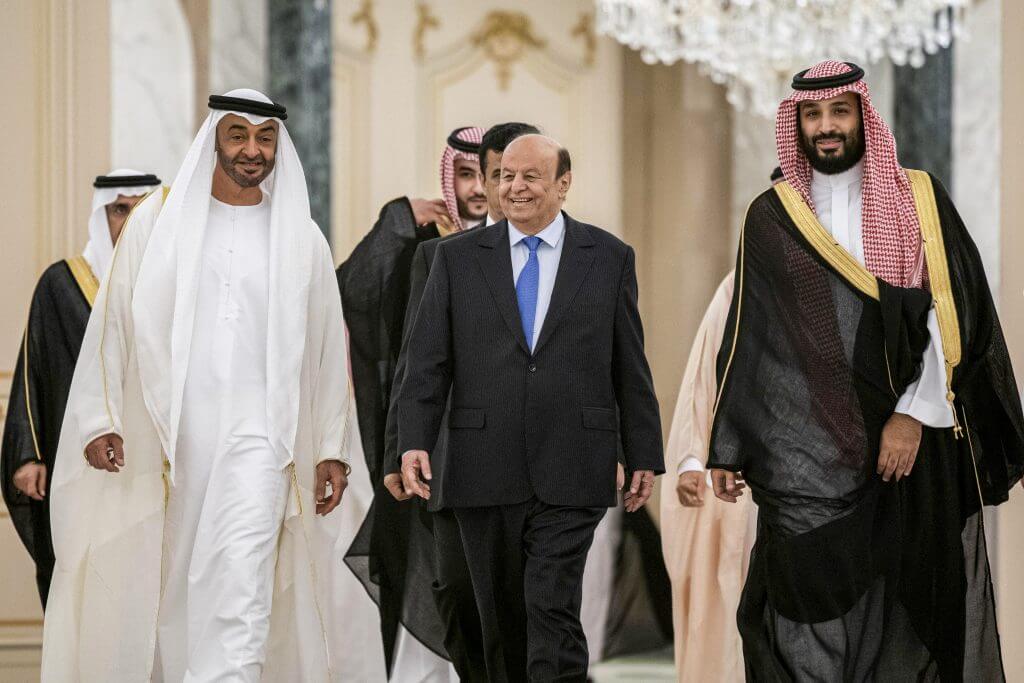Yemen’s exiled President, Abdurabbuh Mansour Hadi, on Thursday stepped down and transferred power to a new Presidential Council set up with the backing of Saudi Arabia and its Gulf allies. The move comes amid an ongoing two-month Ramadan truce agreement reached between parties to the Yemen conflict.
“I irreversibly delegate to the Presidential Leadership Council my full powers in accordance with the constitution and the Gulf Initiative and its executive mechanism,” Hadi announced. The President also dismissed Vice President (VP) Ali Mohsen al-Ahmar.
According to the Wall Street Journal, both Hadi and his VP were seen as obstacles by the Houthi rebels and some in the Saudi-led coalition. Hadi and his government were ousted from the capital Sana’a in 2014 by the Houthis, who do not see the President as representing Yemeni interests.
The rebels also accuse the Hadi government of harbouring officials that killed Yemenis during the 1994 civil war. Hadi fled to Saudi Arabia in 2015, where the internationally recognised Yemeni government is based.
His decision to step down was praised by Riyadh and he was hosted, along with members of the new Presidential Council, by Saudi Crown Prince Mohammed bin Salman (MBS). The Crown Prince said that he hoped the Council’s establishment “would contribute to the start of a new chapter in Yemen that would move it from war to peace and development.”
3. Quite clearly this is an attempt, perhaps a last ditch effort, to reconstitute something resembling unity within the anti-Houthi alliance. The problem is that it is unclear how these various individuals, many of whom have diametrically opposing views, can work together.
— GregorydJohnsen (@gregorydjohnsen) April 7, 2022
Noting that the Kingdom “is keen for Yemen to enjoy security, stability, and prosperity,” MBS stressed that Riyadh will work with “determination and optimism” with all parties to the conflict.
The Presidential Council will have eight members and will be led by Rashid al-Alimi, a confidante to Hadi who is also believed to enjoy close ties with Saudi Arabia. Furthermore, the Council has several leaders of the United Arab Emirates (UAE)-backed Southern Transitional Council.
Gregory Johnsen, a United Nations official, told Reuters that the establishment of the Council is an attempt “to reconstitute something resembling unity within the anti-Houthi alliance” and present the Houthis with a more acceptable negotiating partner.
More (cautious) hope for #Yemen 🇾🇪as President Hadi cedes power to a new Presidential Council. I talked to Al Jazeera today about what this might mean. (For the full interview, go to: https://t.co/xxsXId51E1 ) pic.twitter.com/YRjStFkwLK
— Elisabeth Kendall (@Dr_E_Kendall) April 7, 2022
However, Mohammed Abdulsalam, the chief negotiator of the Houthis called the move a “desperate attempt to restructure the ranks of the mercenaries to push them towards further escalation.” “Any activity outside its [Yemen’s] borders amounts to farcical theatrics and recreational games practised by the aggressor countries,” he declared.
The United States, on the other hand, welcomed Hadi’s decision to step down and the establishment of the Council. Secretary of State Antony Blinken urged the Council to abide by the UN-backed truce and work with all international parties. “Yemenis must have the opportunity to determine the future of their country [and] we urge all the parties to choose the path of peace and dialogue,” he said in a statement.
The formation of the new body was also welcomed by the Arab League, the Organization of Islamic Cooperation (OIC), and other Saudi allies in the Gulf region.
The unrest in Yemen began in 2014, when a civil war broke out between the Houthis and the internationally recognised Yemeni government, which was ousted in the same year by the rebels. In 2015, a Saudi-led coalition, including the UAE, launched a major offensive in Yemen by conducting airstrikes on Houthi-controlled areas. Since then, there has been no end in sight to the war, and international efforts to halt the fighting have largely failed.
The war has killed more than 130,000 people, with the United Nations calling the conflict in Yemen “the world’s worst humanitarian crisis.”

